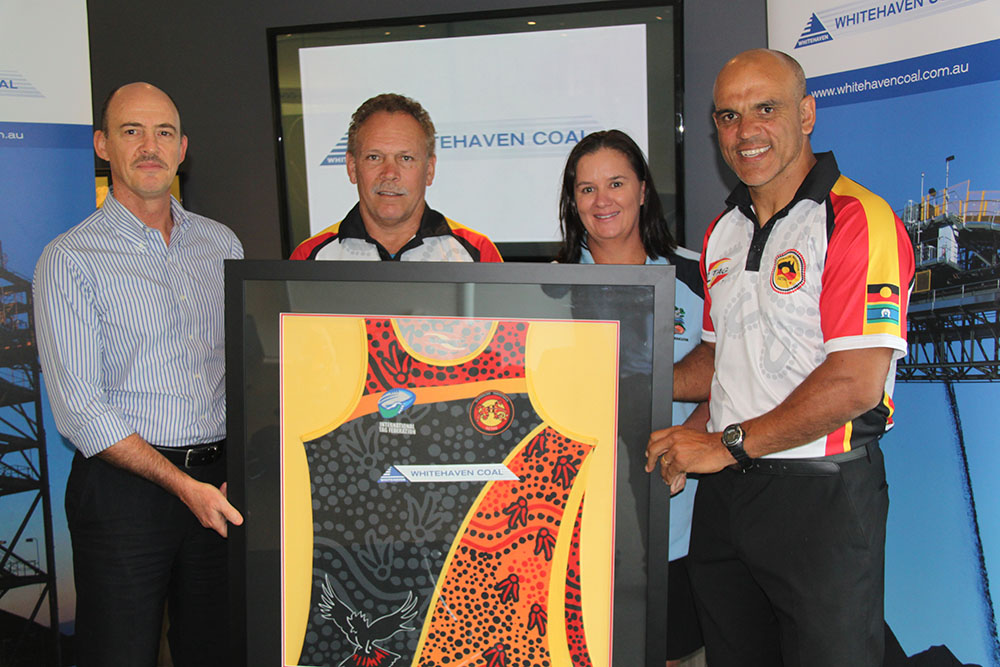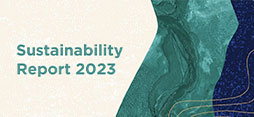30 November 2015
Whitehaven Coal sponsor Australian Indigenous Oztag team for World Cup

Whitehaven Coal is proudly supporting the Australian Indigenous Oztag team when they bid for World Cup glory this weekend.
The mining company is main sponsor of 15 indigenous teams – featuring 320 players aged between under 16s to over 50s – who will compete against a host of international teams on the Sunshine Coast, Queensland between 4-7 December.
Australian Indigenous Oztag (AIO) provides Aboriginal and Torres Strait Islander people the opportunity to play Oztag at an international level. In doing so, AIO inspires healthy active lifestyles, cultural identity, awareness and pride, leadership, self-esteem, education and teamwork.
The AIO squad will compete against teams from New Zealand, NZ Maori, Fiji, Great Britain, Lebanon, Cook Islands, Samoa, Tonga and others. Among the players taking part in the AIO touring squad is former St George Dragons NRL star Nathan Blacklock, who now works for Whitehaven as an operator at the company’s new Maules Creek mine. Other prolific players, role models and mentors for the younger players include Cliff Lyons, Andrew Walker, Rod Silva, Luke Carroll, Jane Stanley and Francine Walker.
Whitehaven CEO and Managing Director Paul Flynn said: “Whitehaven’s commitment to supporting the local Indigenous community not only includes long-term training and employment opportunities for local Aboriginal people, but also addressing disadvantage and dislocation, and sport plays a role in doing that. We already sponsor the Gomeroi Roos, a youth rugby team in Gunnedah, and our partnership with Australian Indigenous Oztag is the next step in our support for Aboriginal and Indigenous sport.”
Whitehaven’s sponsorship of the Australian Indigenous Oztag follows the recent launch of the company’s first Reconciliation Action Plan (RAP). The Innovate RAP focuses on practical and meaningful efforts that Whitehaven will undertake to address issues affecting local Aboriginal and Torres Strait Islander people.
The partnership between Whitehaven and Australian Indigenous Oztag was marked with the company receiving a sponsored jersey at the company’s office in Sydney.
Jeff Hardy, Convenor of Australian Indigenous Oztag, said: “The Indigenous Oztag squad going to the World Cup consists of more than 300 people – ranging from from under 16’s to over 50’s – and we are extremely grateful for Whitehaven Coal’s support. To have 15 indigenous teams taking part in the World Cup is tremendously exciting and I know everyone involved will have a lot of pride when we kick off the competition on 4 December.”
ENDS
Notes to editors:
Pictured are (left to right): Jamie Frankcombe (Executive General Manager Operations, Whitehaven Coal), Cliff Lyons (Indigenous Oztag captain Over 45s), Jane Stanley (Aboriginal Education and Engagement Officer, Department of Education) and Jeff Hardy (Convenor of Australian Indigenous Oztag)
Oztag is a non-tackling game. Normal dimensions of the field are 70 metres x 50 metres. Two fields will fit on one rugby or soccer field. Eight players in each team are on the field at any one time. Players wear shorts with a Velcro patch on each side. A strip of cloth is attached to the Velcro, known as a tag. The object of the game is to score tries. Defenders prevent this by tagging the ball carrier, removing the tag from the shorts.
In Oztag football the attacking team has six plays or tags to try and score a try or promote the ball down field as close to the line as possible. The game is exciting due to the fact of the tagging situation, which can be difficult to remove. The invention of the tag also prevents phantom calls.
All skills are utilised in Oztag football including kicking. Passing becomes an attacking weapon, and if a player is put into a gap, there is a high probability they will make a clean break. When attacking the line, fancy moves such as around-the-corner passes work well, often making the defender stoop low to remove the tag.
The game is low/medium-contact sport and the rules are designed to encourage this – you cannot, as an attacker run straight at a defender, you must run at the gaps. A defender cannot impede the progress of an attacker, so if you try to get a tag and bump the attacker you may well be penalised. The rule is whoever initiates contact will be penalised.
The rules allow for the ball to go to ground with the advantage rule applying – this results in a lot of broken field play. Teams kick off to commence play and restart play after a try has been scored. Line drop-outs are taken from the centre of the try line. Kicking in general play is allowed but it must be below shoulder height of the referee.
Games are usually played over 40 minutes, two twenty minute halves. Times may be varied to suit age groups and conditions.
Source: http://www.oztag.com.au/index.php?page=5398
Back to News Whitehaven coal
Whitehaven coal

